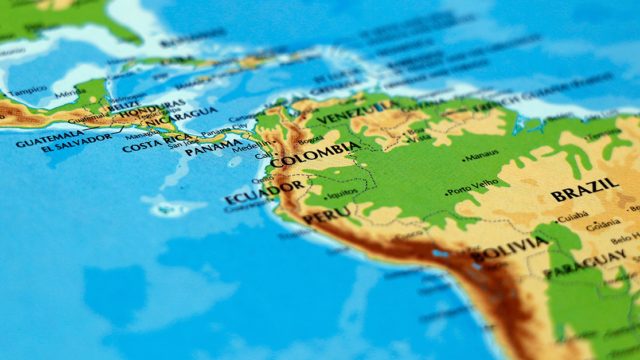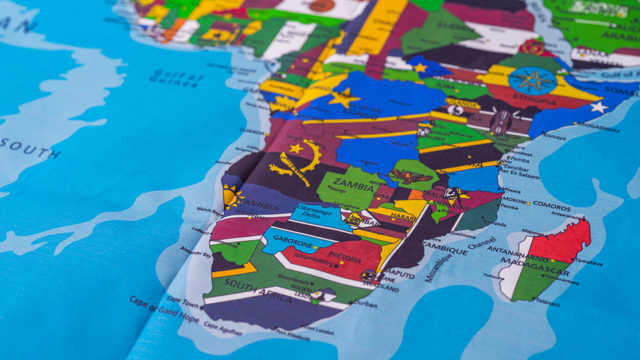Cross-border payment developments and cooperations have transformed the remittance landscape in the GCC region in recent years, allowing for near real-time transactions among member countries - Oman, Kuwait, Bahrain, Saudi Arabia, the UAE and Qatar.
Let’s look at the advancements in cross-border payment collaboration, partnerships and developments in the GCC region and how they benefit businesses and consumers.
AFAQ - GCC’s unified payment system
One of the region’s most significant developments in cross-border payments is the introduction of AFAQ, GCC’s regional unified payment system. Launched in December 2020 and operated and developed by the Gulf Payments Company, AFAQ facilitates seamless connectivity among the payment systems of the 6 central banks of its member countries.
AFAQ’s primary goal is to enable real-time processing of remittances in local GCC and other currencies, promoting faster and more cost-effective transactions. By connecting each country's real-time gross settlement systems, AFAQ ensures transfers between GCC members are executed on the same day. At the time of writing, more than 50 commercial banks have joined AFAQ.
AFAQ has had a transformative effect. The World Bank estimates that the GCC countries accounted for approximately USD 134 billion in outward remittance flows in 2021, making it the highest region worldwide. Also, the region is now the fastest-growing real-time payments market, in no small parts thanks to the growing adoption of AFAQ, which significantly streamlined the cross-border payment and settlement process.
Buna - Arab Monetary Fund’s cross-border payment platform
In addition to AFAQ, the Arab Monetary Fund’s multi-currency platform, Buna, has also played a vital role in easing cross-border payment processes between the wider Arab region and linking inflow and outflow remittances. Buna currently boasts over 100 participating financial institutions in its network.
Buna enables partners in the Arab region and beyond to send and receive payments in local and major international currencies. By supporting multi-currency transactions, Buna strengthens financial connectivity, enhances liquidity management and fosters economic growth.
In short, Buna aims to make cross-border payments as seamless as domestic transactions. This vision drives the platform's adoption, as many partnerships have been forged on the promise of greater interoperability between the region and its global counterparts.
Cross-border partnerships
Thanks to region-wide initiatives like AFAQ and Buna, money service providers in the GCC region and beyond actively explore opportunities to expand their market presence in other corridors. Below are some notable partnerships that have improved the region’s payment infrastructure, enhanced digital finance adoption and driven innovation in the industry.
Ripple and the Saudi Arabian Monetary Authority
Ripple, the leading enterprise blockchain solution for global payments, signed a deal with SAMA in 2018 to enable banks in the kingdom to explore using Ripple’s blockchain solutions for cross-border payments. Together, they created a pilot programme that allows these banks to leverage Ripple’s enterprise solution to facilitate instant cross-border payments. This partnership built a platform for enhanced cooperation between Saudi Arabia and other countries.
Travelex and UAE Exchange
In 2016, UAE Exchange’s stakeholders acquired foreign exchange company Travelex for USD 1.2 billion. The partnership allowed UAE Exchange to increase its customer base - it mainly catered to low- and middle-income groups, while Travelex catered to middle- and high-income groups. Moreover, by consolidating the target audience and profiling, the partnership inevitably enhanced the cross-border experience in the UAE and the wider GCC region.
Tarabut Gateway and Visa et al
Tarabut, Saudi Arabia’s gateway (pun intended) to open banking, recently raised USD 32 million to enhance financial innovation in the kingdom and the wider MENA (Middle East and North Africa) region.
While there are other investors like Tiger Global and Aljazira Capital, Visa’s involvement in the funding round is notable. Tarabut, in a statement, even said the company “plans to leverage Visa’s extensive expertise, experience and network in the payment sector” to create an open financial services ecosystem that benefits consumers, banks and fintechs.
Tranglo and Al Ansari et al
In May 2023, Tranglo announced a series of partnerships with some of the biggest money services providers in the GCC region, such as Al Ansari Exchange and Lulu Money, as part of its Middle East expansion programme.
These partnerships leveraged each company’s strengths in their respective areas of expertise to empower users with real-time cross-border transactions. For example, Tranglo can maximise working capital by tapping Ripple’s On-Demand Liquidity, allowing its regional partners to scale growth via instant liquidity and flexible settlement.
Cross-border payment evolution
The GCC region has witnessed significant advancements in cross-border payment collaborations, partnerships and developments. AFAQ, Buna and major partnerships have revolutionised how regional and international businesses conduct cross-border transactions. As the region continues to innovate and collaborate, companies operating within the GCC can expect further advancements in cross-border payment solutions.







